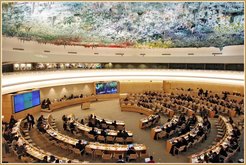Current Research Project
Everyday uses and practices of Islamic Justice in the UK
Postdoctoral project supported by ‘Rechtskulturen’ (Humboldt University) and currently Max Planck Institute for Social Anthropology.

This ongoing research is an ethnographic exploration of everyday uses and practices of Islamic law in British Shari’ah Councils. Based on fieldwork conducted since 2009, the study envisions shari’ah in the UK as a counterpublic space where Islam represents the discursive terrain upon which religious actors struggle to define alternative conceptions of justice and morality. The study focuses on the values, subjectivities, gender dynamics, affects and standards of behaviour that are produced through routine interactions. It interrogates issues of authority and knowledge claims in Islamic legal practice in contemporary England. In the coming year, the fieldwork will be expanded to include legal firms and financial institutions specialising in Islamic law.
Keywords: Legal anthropology, Islamic law, gender, Europe
Previous Research Project
International human rights monitoring at the reformed United Nations Human Rights Council: An ethnographic and historical study
Project directed by Prof. Jane Cowan. Funded by the British Academy.
This ethnographic study investigates the Universal Periodic Review (UPR), a new mechanism of rights monitoring put in place by the (reformed) UN Human Rights Council in Geneva. Through a series of case studies, interviews with various actors involved in the UPR (NGOs, diplomats, International civil servants) observations of UPR sessions, and participant observation at the Office of the High Commissioner for Human Rights’ (OHCHR) secretariat, this research seeks to define the nature and function of this new monitoring exercise. The UPR is conceived as a public audit ritual grounded on a broad social and political field constituted through specific encounters, institutional codes, norms, knowledge practices and documentation processes. The research highlights the intended and unintended effects of this cyclical repetition of audits. The main questions that this study seeks to answer are: through which encounters, using which technologies and resources, in relation to which identities, do actors manage to assert certain facts, negotiate the meaning of human rights and formulate interventions in order to produce the UPR?
Keywords: Legal anthropology, human rights, international law, international organizations


